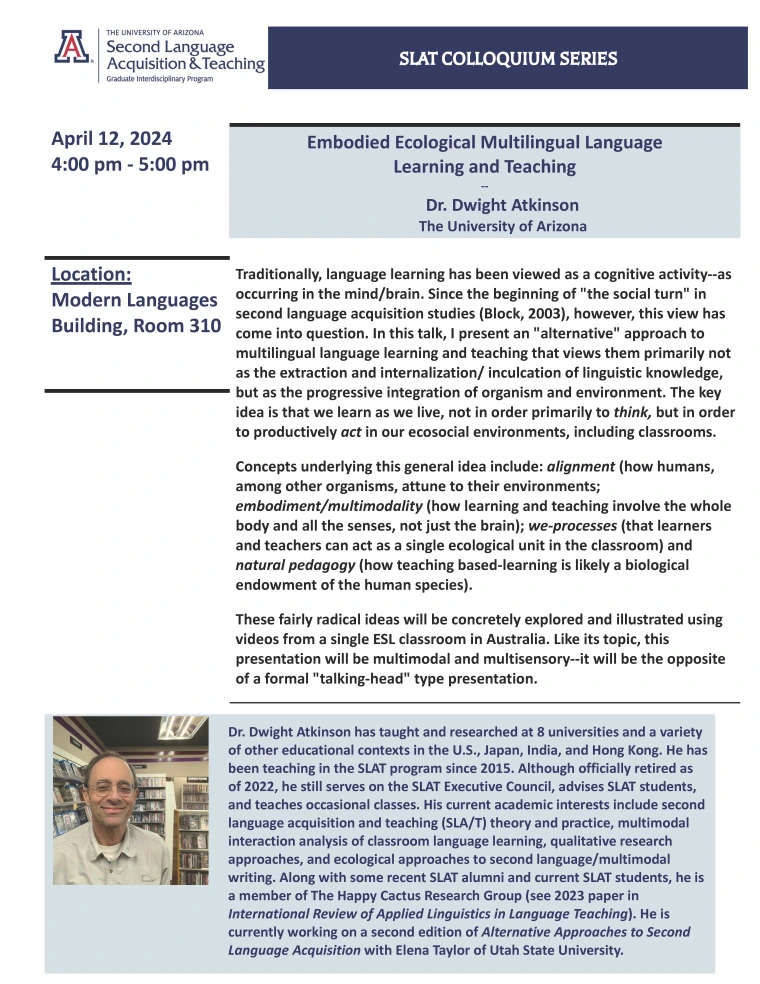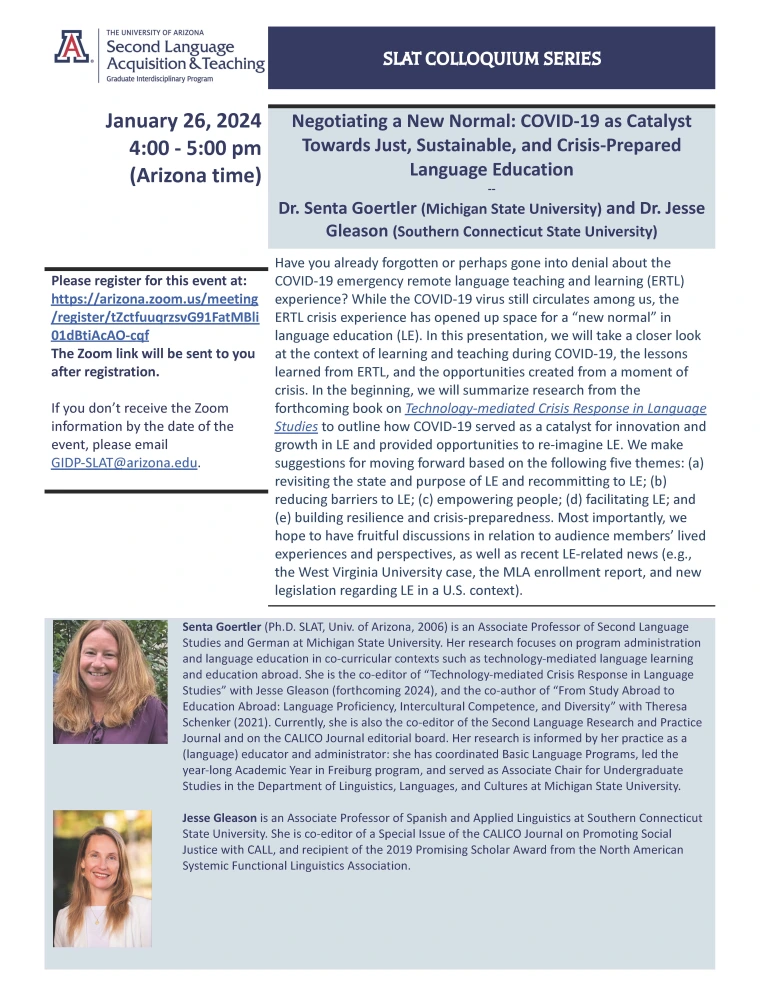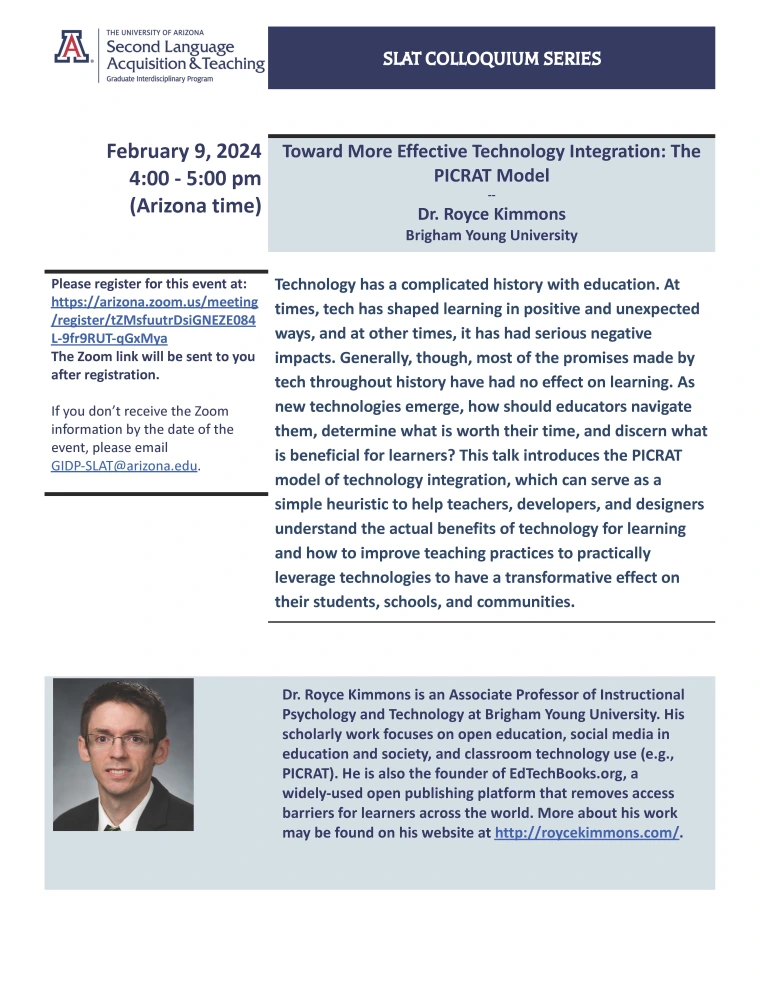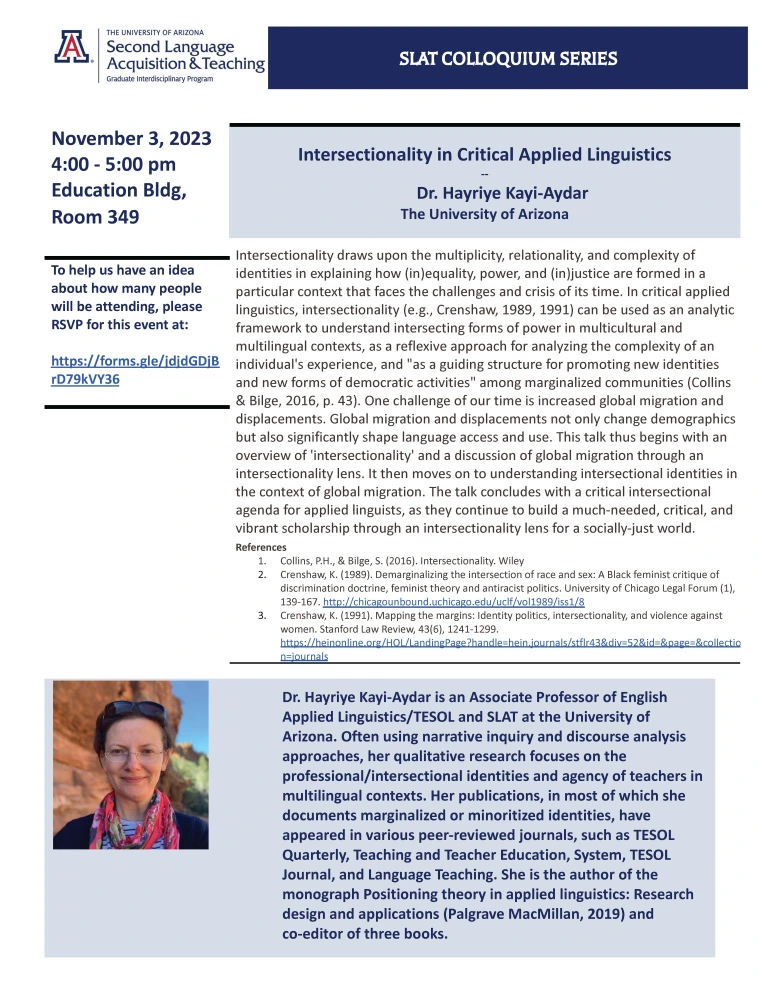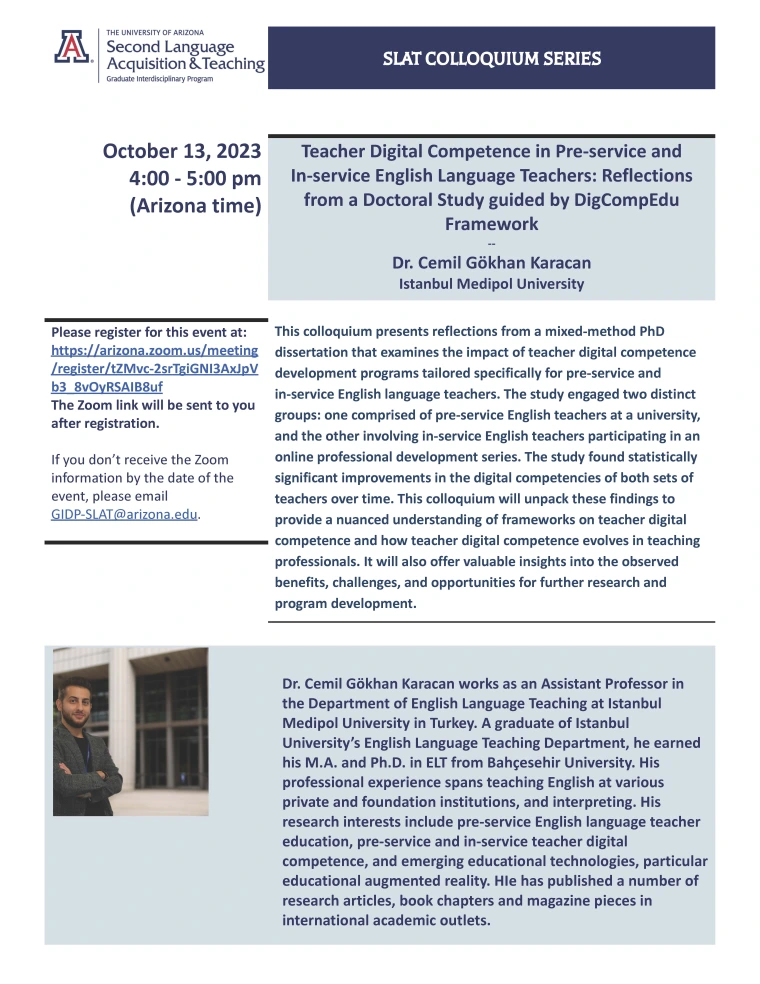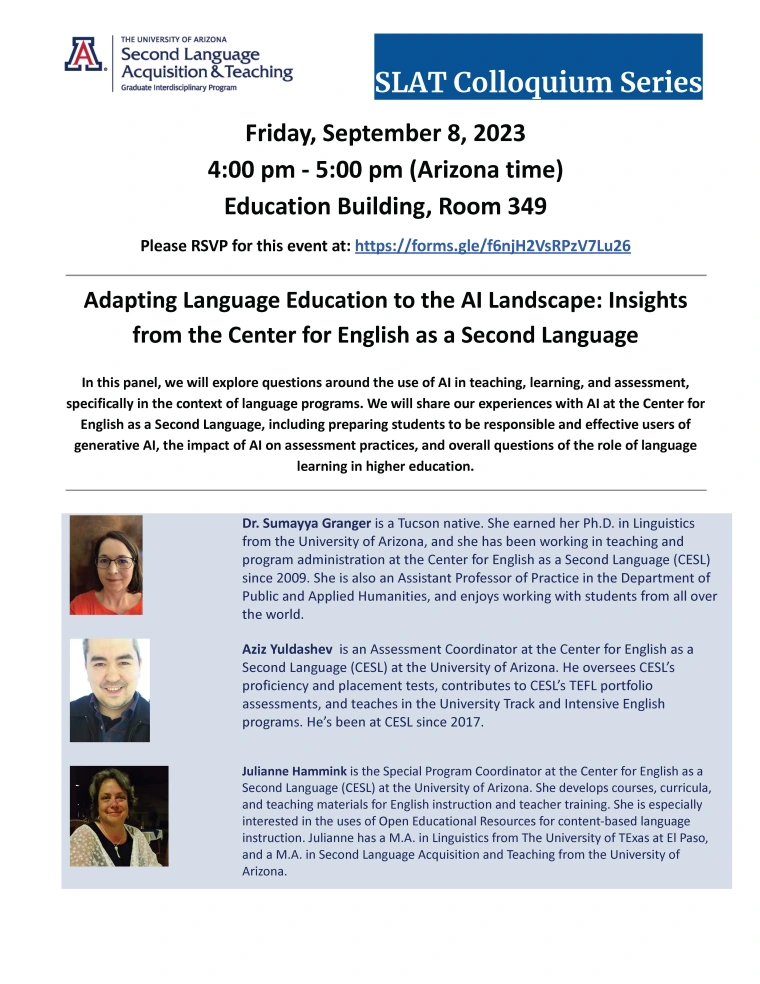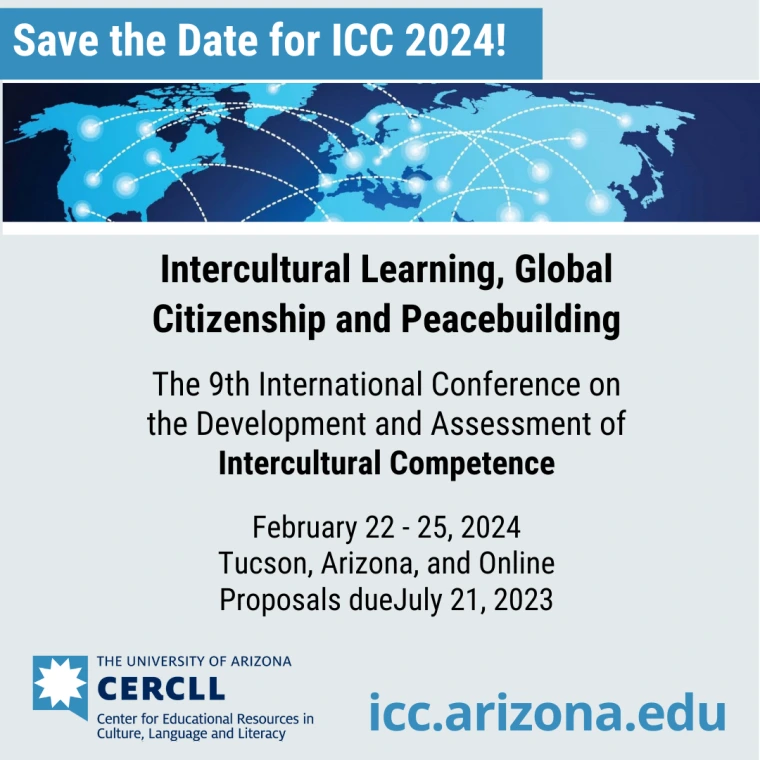Negotiating a New Normal: COVID-19 as Catalyst Towards Just, Sustainable, and Crisis-Prepared Language Education
When
4 – 5 p.m., Jan. 26, 2024
Colloquium Title: Negotiating a New Normal: COVID-19 as Catalyst Towards Just, Sustainable, and Crisis-Prepared Language Education
Abstract: Have you already forgotten or perhaps gone into denial about the COVID-19 emergency remote language teaching and learning (ERTL) experience? While the COVID-19 virus still circulates among us, the ERTL crisis experience has opened up space for a "new normal" in language education (LE). In this presentation, we will take a closer look at the context of learning and teaching during COVID-19, the lessons learned from ERTL, and the opportunities created from a moment of crisis. In the beginning, we will summarize research from the forthcoming book on Technology-mediated Crisis Response in Language Studies to outline how COVID-19 served as a catalyst for innovation and growth in LE and provided opportunities to re-imagine LE. We make suggestions for moving forward based on the following five themes: (a) revisiting the state and purpose of LE and recommitting to LE; (b) reducing barriers to LE; (c) empowering people; (d) facilitating LE; and (e) building resilience and crisis-preparedness. More importantly, we hope to have fruitful discussions in relation to audience members' lived experiences and perspectives, as well as recent LE-related news (e.g., the West Virginia University case, the MLA enrollment report, and new legislation regarding LE in a U.S. context).
Please register for this event at: https://arizona.zoom.us/meeting/register/tZctfuuqrzsvG91FatMBli01dBtiAcAO-cqf The Zoom link will be sent to you after registration.
Dr. Senta Goertler (Ph.D. SLAT, University of Arizona, 2006) is an Associate Professor of Second Language Studies and German at Michigan State University. Her research focuses on program administration and language education in co-curricular contexts such as technology-mediated language learning and education abroad. She is the co-editor of “Technology-mediated Crisis Response in Language Studies” with Jesse Gleason (forthcoming 2024), in which they present lessons from the COVID-19 pandemic; and the co-author of “From Study Abroad to Education Abroad: Language Proficiency, Intercultural Competence, and Diversity” with Theresa Schenker (2021), where they argue for the revitalizing the Junior Year Abroad and diversification of education abroad. Currently, she is also the co-editor of the Second Language Research and Practice Journal and on the CALICO Journal editorial board. Her research is informed by her practice as a (language) educator and administrator: she has coordinated Basic Language Programs, led the year-long Academic Year in Freiburg program, and served as Associate Chair for Undergraduate Studies in the Department of Linguistics, Languages, and Cultures at Michigan State University.
Dr. Jesse Gleason is an Associate Professor of Spanish and Applied Linguistics at Southern Connecticut State University. She is co-editor of a Special Issue of the CALICO Journal on Promoting Social Justice with CALL, and recipient of the 2019 Promising Scholar Award from the North American Systemic Functional Linguistics Association.
